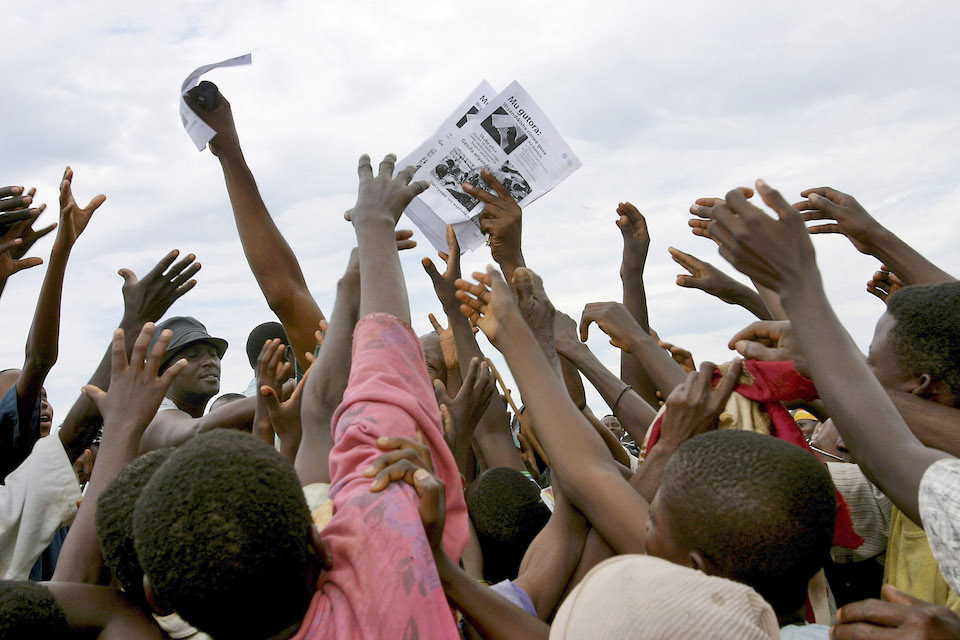Peace and fair elections in Burundi
Statement by Stephen Hickey, UK Political Coordinator at the UN, at the Security Council briefing on Burundi

And thank you to our briefers, Special Envoy Kfando for his update and to Ambassador Lauber for updating us on his trip to Burundi and the region and for so clearly setting out his recommendations.
I would also like to welcome the latest report of the Secretary-General which provides a valuable record of factual information of the current situation in Burundi and we look forward to discussing this set of options that the Secretary-General will present to the Council on the UN’s continuing role in Burundi.
Mr President, the United Kingdom agrees with the Secretary-General and so many Council Members here today that the East African Community-led inter-Burundian dialogue, led by the region, is the only viable option to guarantee open and inclusive elections in 2020. We also recognise the importance of the African Union in supporting EAC’s efforts in this regard.
We commend the EAC for their engagement so far, and commend the efforts of the EAC facilitator, former President Mkapa, and Special Envoy Kfando, despite the many challenges to progress. There is still a long way to go before inclusive, fair and credible elections can take place in 2020. And the credibility of these elections will be essential for the stability of Burundi. Citizens must have faith in their political process in order to accept its results.
Mr President, for this reason we share the disappointment of Peru and many other speakers here today that the Government of Burundi did not attend the fifth round of the inter-Burundian dialogue. Their participation is crucial to make this process a success. We therefore encourage the EAC to redouble their efforts to remain engaged and to continue to push for a tangible, inclusive dialogue. A harmonised roadmap that all parties can support and which preserves the gains of the Arusha Peace and Reconciliation Agreement is crucial. We hope that discussions on how to achieve this will take place at the EAC Heads of State Summit. We also call on the Government and its allied parties to continue to engage in dialogue with the region and in doing so to send a clear signal of its continued commitment to resolve the ongoing political crisis.
Mr President, we continue to be deeply concerned by the reports of human rights violations, abuses and related crimes that have continued since our last briefing in August. And the Special Envoy mentioned this issue during his own briefing.
The recent suspension of international NGOs is of deep concern. These NGOs support the most disadvantaged and vulnerable in Burundi including refugees and those with infectious diseases. The humanitarian situation will inevitably deteriorate without these actors and therefore we hope that the registration of the NGOs can continue without delay. I would also like to agree with my Polish colleague when he spoke about the about the centrality of human rights issues to the work of this Council. We heard earlier this year from Prince Zeid that human rights violations and abuses can often be the canary in the coal mine when it comes to predicting conflict so it’s very important that as a Council we remain seized of these issues. I also note that many speakers have noted the role of the Human Rights Council has to play on Burundi and I would therefore urge the Government of Burundi to cooperate fully with the Human Rights Council’s mechanisms including the OHCHR.
Mr President, it is clear from the Secretary-General’s report and the wider discussion here today that Burundi should remain on this Council’s agenda. Although the security situation may have improved, armed attacks continue and we have deep concerns about the political crisis, the humanitarian and human rights situation, which as we have seen in many times before, are often the root causes of conflict and must be addressed by this Council.